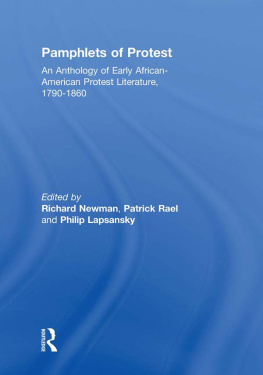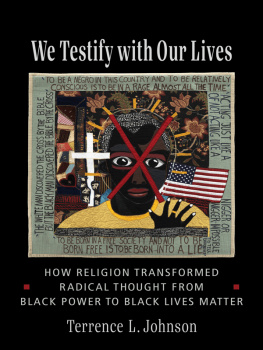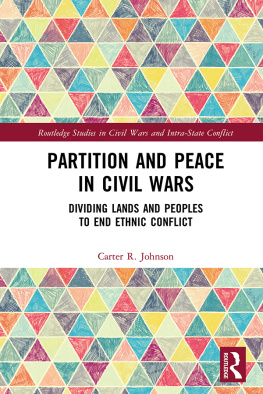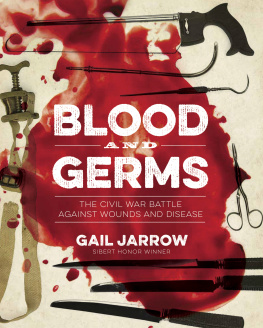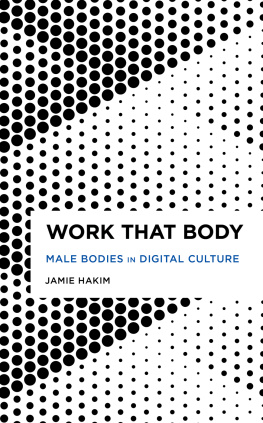ACKNOWLEDGMENTS
I would like to thank a wonderful group of family, friends, and colleagues who have been integral to the writing and completion of this book and deserve much more than a few lines on an acknowledgments page.
The members of my dissertation committee at the University of California, Los Angeles, have remained invaluable resources during this projects journey toward bookhood. Eric Sundquist provided helpful feedback, and Joan Waugh kept me firmly grounded in the Civil War era. I cannot thank Richard Yarborough enough for his astute and incisive editing and advice. He also gave me extensive help with argumentation and style. Michael Colacurcio tirelessly supported my work, my academic career, and me. I am forever grateful to Prof C. for his unwavering advocacy and guidance.
My wonderful colleagues and friends at UCSB and San Jose State University saw me through the final stages of manuscript preparation and kept me sane. Thanks to my friends in Los Angeles and my family in Riverside for unwavering support, tons of fun, and lots of love. Very special thanks to Fuson Wang for reading multiple drafts and always providing helpful feedback (and being the big brother I never knew I wanted). Thanks to my sister Katie for always believing in (and only occasionally throwing lemons at) me.
I dedicated this book to my parents because it would not exist without them. All I am and hope to be is due to them and their love and guidance. To Blake, my husband: thanks for putting up with all the bad puns and being
my refuge and my love; I promise Ill dedicate the next one to you.
Afterword
I n his poem Lo, Victress on the Peaks, Walt Whitman claims that he brings no poem proud to the triumphant Union. Though the war is over and the North has won, Whitman gives to his country a little book containing nights darkness and blood - dripping wounds / And psalms of the dead. Whitman was not alone. Lesser - known poets and authors confronted and accounted for the vicissitudes of battle and the long - lasting scars of internecine warfare. The canon has come a long way since Edmund Wilsons Patriotic Gore, but it is due for an influx of embodied accounts of the concrete effects of violence that reveal the real war did in many cases get in the books. Any survey course about or scholarly study of nineteenth - century American literature should attend to the primacy of print culture and to popular literatures influence on the canonical texts we still read and remember today.
The canonical implications and pedagogical possibilities of disruptive bodies in Civil War print culture are indicated by how two fundamentally canonical American authors, Walt Whitman and Herman Melville, engage with a key concept: the allegorical feminine. Whitmans Drum - Taps and Sequel to Drum - Taps , and Melvilles Battle - Pieces and Aspects of the War participate in and draw from wartime print culture and are populated by bodies; most of these bodies, however, are Caucasian and male. Both poets mention wars effects on womenMelvilles A Mound by the Lake and Whitmans Come Up from the Fields Father feature unnamed but symbolic womenbut most feminine elements in their poems are allegorical. Attending to the rhetorical implications of female personifications in Whitmans and Melvilles responses to the conflict provides a convenient entry point into the lesser - known print culture that informed the work of both poets; it also further underscores the widespread and fundamental role the allegorical feminine played in literary representations of the war, and the ways in which such allegorical representation obscured the actual contributions of real American women.
In poems like Beat! Beat! Drums! Whitman urged the North to war, the preservation of the nation foremost in his mind. His time in Washington, D.C., hospitals, tending to the soldiers he loved, tempered his enthusiasm; nevertheless, he remained supremely confident in the Union and its cause. Whitman regularly invoked the allegorical feminine, and therefore provides further proof of Columbias dominance as national representative and mother. The Victress Whitman invokes is none other than Columbia, this time in the guise of Libertad. She surveys the world with mighty brow, having thwart[ed] all attempts to destroy her. Columbias immortal soundness and bloom stand in stark contrast to the aforementioned blood - dripping wounds; she, unlike the children who fought on her behalf, is unscathed and unharmd. Whitmans Columbia is far removed (standing on pedestal - like peaks) from the vicissitudes of war due to her status as an allegorical construct. Ostensibly, the little book
Whitman brings will constitute her closest contact with the conflict.
Over the Carnage Rose Prophetic a Voice features another remote Columbia as inspirer of and impetus for male action. Calling on the sons of the Mother of All! Whitmans prophetic poetic persona avers, you shall yet be victorious. Victory, the prophecy implies, will come only through collective masculine action on behalf of Columbia, who occupies the roles of mother and lover. At her most allegorical, she sponsors and requires the comradeship of men: those who love each other shall become invinciblethey shall yet make Columbia victorious. The homosocial bonds between fighting menmanly affection in the streets between those linked with the love of loversoccur under the auspices of a removed but loving maternal feminine. The prophetic voice makes no mention of Columbias daughters, but any discussion of allegorical femininity during the Civil War should account for the equal importance of symbolic femininitythe substantial presence of real womens real wars in print culture. Whitmans Columbia, though monumental and triumphant, is detached from the lived experiences of American women.
For the most part, actual women are also absent from Melvilles Battle - Pieces . The Scout Toward Aldie mentions a doomed sunny bride and a sister - rebel who teaches Union soldiers a valuable lesson about womans wiles in wiles of war, but the women and their wiles are secondary to the drama of Melvilles lyrical interludes. The allegorical feminine, however, appears often, under the guise of Hope, the Past, Israel, Authority, and a monstrous maternal South who with heat of her hate ... hatched the egg with the cockatrice. The allegorical feminine provides Melville with a convenient means by which to invoke what he sees as the major forces, concepts, and stakes shaping the war.
In America, Melville personifies the titular figure in a fashion surprisingly similar to S.J.A.s poem Not Dead, published in Harpers Weekly in 1861. The latter poem took its inspiration from a motto printed on a New York banner: The Union is not dead but sleeping. Melvilles poem begins with a description of a Banner in gladsome air, floating above a sunny Dome in peacetime. The personified banner is inextricably tied to the allegorical and feminine representative of the nation, the young Maternity invoked at the end of the first stanza; its changing environments and roles mirror the progress of the country during the war. The second stanza finds the banner stream[ing] in fight, witness to the lorn Mother ... pale at the fury of her brood, while in the third the banner has become a shroud for the Unions fair cold form. The shining shroud fails to rouse the national mother, but a watcher reports that she sleeps, but sleeps, she is not dead. The unnamed watcher echoes S.J.A.s poem; this similarity is perhaps not surprising, since Melville lived in New York during the war and eagerly read newspapers to learn about its progress. Whether or not Melville was familiar with the poem or with the New York banner, he finds in the Unions temporary and nightmarish trance a fitting analogy for the nations temporary and nightmarish dissolution.
Moving from peace to war and back to peace, Melvilles poem ends with the somewhat subdued triumph of the now mature and unthreatened national mother. In other words, America ends where Lo, Victress on the Peaks begins. Having survived the national struggle, Melvilles version of Columbia is not emotionally unscathed. Her look speaks of pain that purifies from stain, but her fair form is intact; in her recent purification, America resembles the Columbia cleansed of the national sin by hero - blood in Charles A. Barrys Columbias Invocation. Having survived a conflict that threatened to destroy her, America wears law on her brow and empire in her eyes. Whitmans triumphant and unharmd Victress also boasts an impressive and mighty brow regarding the world as she stands dominant in the dazzling sun. America ends with a similar final vision of the mother - nation :
Next page

